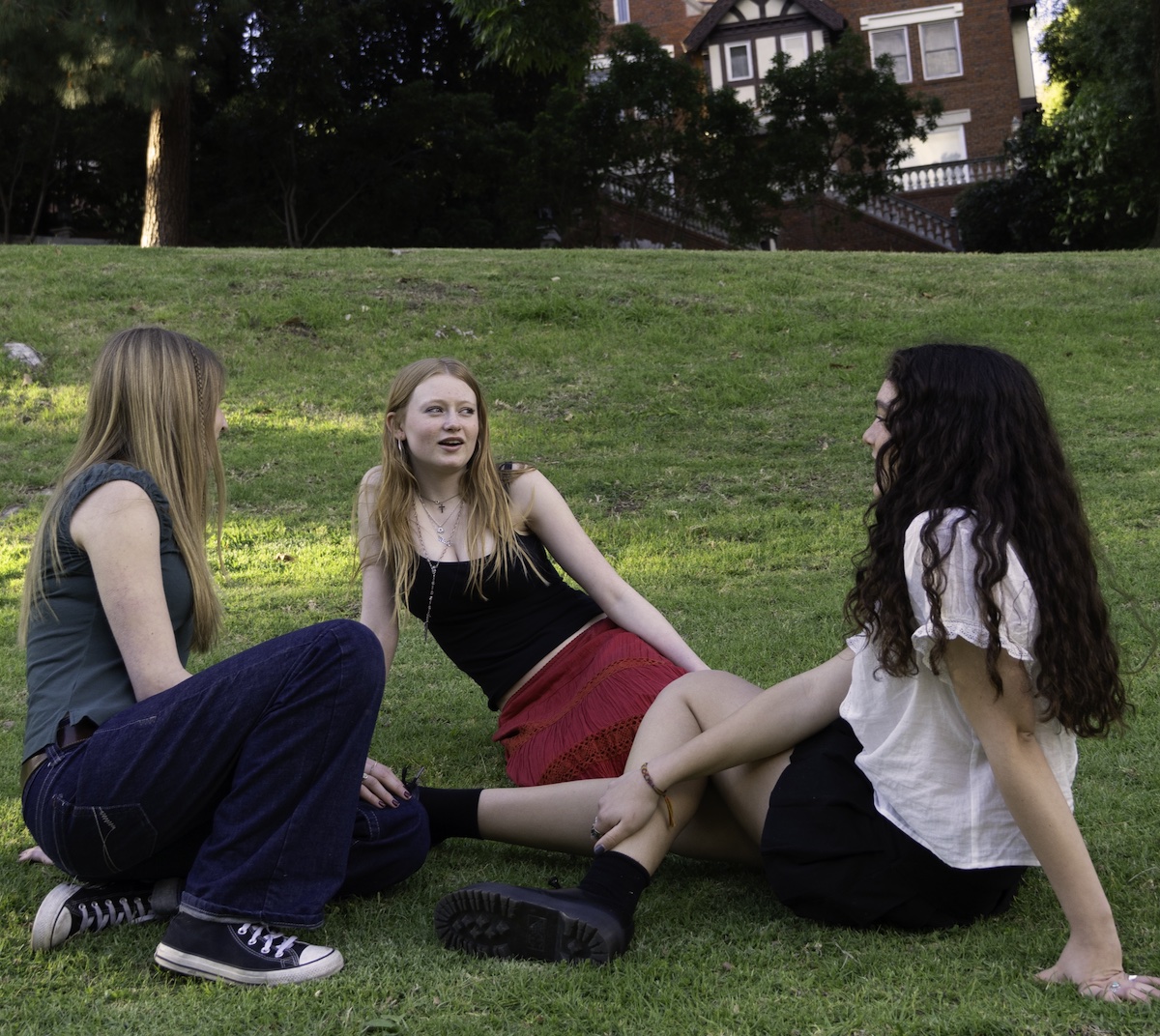
By: Ariella ’15 and Julia ’15
Two years ago, Emily ’15 embarked with sixteen of her peers on a spring break trip to Italy sponsored by the School. The group checked into the Hotel Riviera in Venice and immediately flopped onto creamy white bedspreads. For the next ten days, Emily and her friends roamed the city, sampled Italian delicacies and perused works of art. While the girls shared many memories and sealed their bond to one another, they rarely broke away to interact with the natives.
On the other hand, Jesse ’13 spent nine months last year in Viterbo, Italy through School Year Abroad (SYA)—an academic program in which high school juniors and seniors live with host families in a foreign country. Instead of shopping on the Ponte Vecchio in Florence, Jesse performed all the everyday chores expected of a teenage girl, from feeding her family’s cats to doing the laundry. Although she was not scouring museums, Jesse said she soon found herself absorbed in Italian culture and language, even adopting Italian mannerisms in her American-English speech.
In an effort to cultivate global citizenship, Marlborough’s 2010-2020 Strategic Plan—a set of broad goals that envision the future of the School—includes the objective for students to “Engage Locally, Lead Globally.” Assistant Head of School and Director of Upper School Laura Hotchkiss says this objective is the “focus of this semester, and probably the focus for the rest of the year,” but students such as Samara ’15 said they “have seen no change within their classes to match the School’s goal.”
In fact, English instructor and former English Department Head Joe Koetters said that because the schedule implemented in the 2011-2012 school year involves fewer class meetings per semester, the English Department has had to reduce the number of international novels it assigns. “The School is asking us to do more by being global while asking us to do less by reducing the amount of work, which is not possible,” he said.
Marlborough has begun to provide more opportunities for experiential global learning, specifically in the form of studying abroad and going on School-organized international excursions. However, several faculty members said these expensive and poorly attended trips seem to prove inconsequential in the long-term, calling into question their educational benefit and their ability to truly inspire students to learn more about other countries. Alternatively, SYA presents students with the option of more comprehensive cultural immersion, but financial and scheduling barriers prevent large numbers of girls from participating.
In a world that is growing progressively more interconnected, what does it truly mean to lead globally? Is the School’s Trip Program doing enough to promote complete immersion in and understanding of different cultures? And how can Marlborough best equip its students to become global citizens?
THE ACCIDENTAL TOURISTS
Optional, international school trips give girls a taste of different cultures, but many students and faculty members feel their instructive potential is squandered by the luxury of the itinerary and the overall lack of attendance.
According to Hotchkiss, the goals of the Trip Program are “extending four walls of the School, inspiring philanthropic spirit and commitment and preserving and enhancing a diverse community.” This year, the School offered excursions to Italy, Costa Rica, Guatemala, China and Yellowstone Park, as well as a Sound of Music Tour, which traverses Austria and Germany for ten days.
The School held a Trip Fair on Oct. 2 in the East Atrium to encourage student participation. However, the Fair was greeted by meager attendance and some sign-up sheets still hang limply on the walls of Caswell Hall, devoid of signatures. As of Nov. 20, the only trip with enough participants to run is the spring break trip to Italy, led by Foreign Languages Department Head Leigh Hansen.
Dean of Student Life and English instructor Sarah Wolf, who is in charge of coordinating trips, said that although she laments students’ seeming lack of interest, she also recognizes the difficulties of leaving family and friends behind.
“Spring and winter break are very family-oriented,” Wolf said.
Still, faculty and staff suggest the Trip Program needs to reassess the educational value of trips offered. Associate Director of Academic Technology Shauna Callahan, a former French language instructor and trips coordinator at Archer School for Girls in Los Angeles, said she looked to provide an elevated experience when exposing girls to different countries.
“When I started assessing the certain trips the school wanted to run, I tried to look for opportunities where students would get the experience to go beyond what they would do on a typical family vacation, particularly through the perspective of the trips, to make sure we weren’t just going as tourists but to learn about the culture and from the culture.”
Instead of promoting “fabulous food” and shopping, as the itinerary from the Italy trip advertised this year does, history and social sciences instructor Mike Rindge suggested that the Trip Program could emphasize community service.
“One thing that could be developed more is service-based trips… some sort of giving back to the places you visit,” he said.
Emily, too, said that the School should more consciously emphasize humanitarianism.
“I wish Marlborough offered service trips and fun trips so you could choose between them, since only really fun trips are offered,” she said.
In response to suggestions like these, foreign languages instructors Sandra Battiata and Regina Rosi crafted a Guatemala trip that promised service projects, experiential learning and language skills.
“This trip will visit a Mayan community where girls would stay five nights with a family, probably in a rural area,” Battiata said. “We would have language classes in the morning. Then in the afternoon we would visit schools, do a small service project and learn about women’s education and human rights.”
However, last Friday, Nov. 16, Battiata and Rosi cancelled the Guatemala trip due to a lack of sign-ups.
CAGED IN
Although the School claims to support students who wish to attend the SYA program, many students say they have to jump through numerous bureaucratic hurdles in order to study abroad. These restrictions seem to suggest to some students that the School does not fully support those who wish to expand their cultural horizons by spending a semester or two in a foreign country, despite the administration’s stated aim of globalization.
Erica ’13, who attended SYA in Viterbo, Italy for her junior year, said that receiving initial permission to go abroad proved difficult.
“I applied on my own to SYA, which was an easy application,” Erica said. “But my parents and I still had to meet with [Mrs.] Hotchkiss to discuss finances.”
Similarly, Jesse admitted that the School placed extra financial strain on her family.
“Holding my spot at Marlborough was expensive,” Jesse said.
The tuition for SYA is set every year in February by the SYA Board of Trustees, and the average program hovers around $50,000 for a full year. This price tag covers medical insurance as well as meal and lodging expenses. To hold her spot at Marlborough, a student must pay 10% of that year’s tuition.* However, SYA offers financial aid and, according to its website, “in a typical year, some 40% of our families receive more than $3 million in grants, averaging approximately 60 percent of tuition costs.”
Yet even after students fulfill all fiscal obligations to both Marlborough and SYA, the administration prohibits seniors from studying abroad. In fact, seniors who elect to attend SYA are unable to graduate with their peers.
Angelica ’14 said that this restriction is unjust.
“Even if, in going away, the college process becomes more difficult, a senior who wants to go to SYA should be allowed to attend,” Angelica said.
However, Zoe ’13 said that the School has a right to pose restrictions on students who wish to go abroad as seniors.
“Senior year is your last year,” Zoe said. “It would be super awkward if [students who studied abroad as seniors] came back just for graduation.”
Nevertheless, Hotchkiss said that girls who wish to study abroad are encouraged to do so.
“The process to study abroad could be perceived as difficult because there are requirements to fulfill, and we don’t want every eleventh grader to leave,” Hotchkiss said. “Once the student and family have reviewed the requirements, the School fully supports a student to travel abroad.”
*CORRECTION: The print version of this article stated that students going abroad needed to pay 100% of Marlborough tuition to hold their spots. However, Assistant Head of School and Director of Upper School Laura Hotchkiss has since confirmed that students only need to pay 10% of tuition to retain a place at the School.






